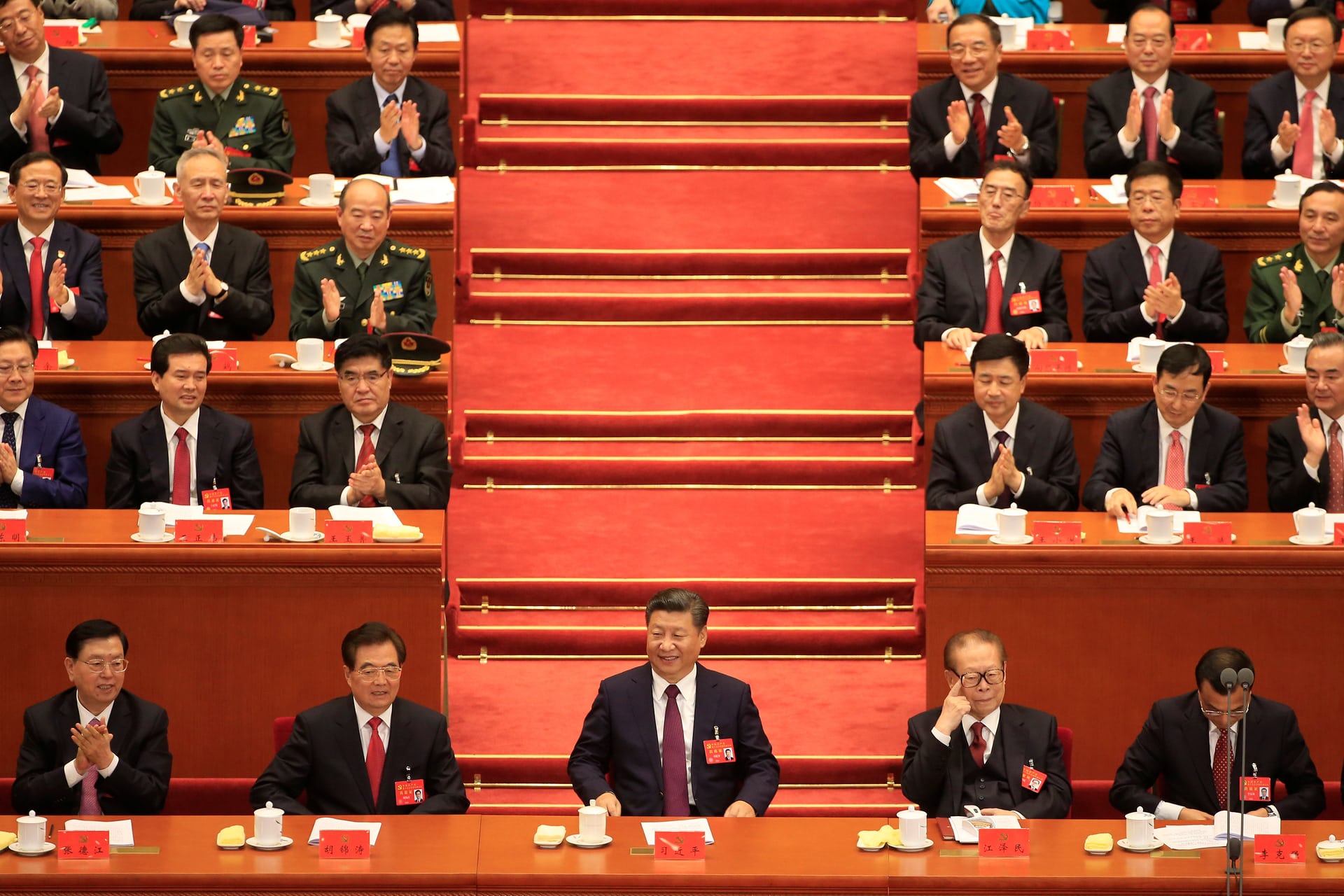
(Photo courtesy: Aly Song/Reuters)
(TibetanReview.net, Oct19, 2017) – While much is being made of the 19th, five-yearly national congress of the Communist Party of China, which opened in the Great Hall of the People in Beijing on Oct 18, everyone knows that these congresses do nothing more than endorse decisions already made behind closed doors by a secretive group of 20 or so top leaders. It is a piece of political theater that is at once ‘holy’ and ‘hollow’, an npr.org commentary Oct 17 quoted University of Victoria political scientist Wu Guoguang as saying.
In theory, the national congress is the party’s highest organ of power, including in the matter of electing the top leaders. But Wu, the author of China’s Party Congress: Power, Legitimacy, and Institutional Manipulation, who helped draft political reforms for the late Chinese Premier and Communist Party boss Zhao Ziyang, has said the leadership has many ways to manipulate the institution to make sure nobody it dislikes is ever nominated — much less elected.
“The party does not play the game by its own rules,” he has said.
Under the Communist Party’s charter, the nearly 90 million party members select nearly 2,300 delegates, who in turn vote for a roughly 200-member central committee. That committee then elects a 25-odd-member Politburo, a standing committee having between five and nine members and the party’s general secretary or top leader.
However, in reality, the election is only a formality, Wu has said, adding, “the positions are decided in advance of the congress” and the delegates are given them only to rubber-stamp.
He has said the actual selection of the party leadership is done “in a black box” behind closed doors. In other words, power may appear to flow from the bottom up while it actually goes from the top down.
Experts’ best guess, Wu has said, is that around 20 people, including serving and retired members of the Politburo Standing Committee, bargain in secret to decide the next leader several months before the congress.
And one of the devices used by them to make sure that none of the candidates they do not like gets nominated is to hold a sort of straw poll or dry run ahead of the congress, so that leaders can sniff out and neutralize opposition to their preferred candidates.
The commentary cited Hong Kong University of Science and Technology professor Ding Xueliang as saying Political arrangements in China are rarely explicit. “After thousands of years of Chinese politics, rulers have developed innumerable methods to get what they want,” he has said, adding, “It’s never so simple.”


